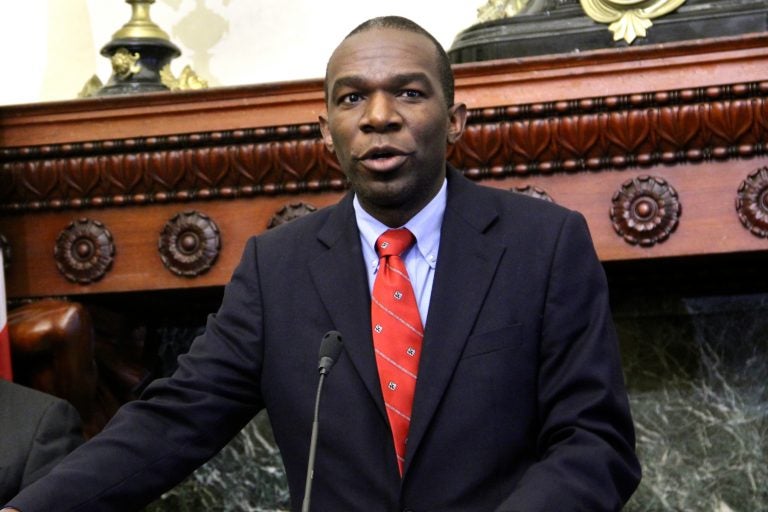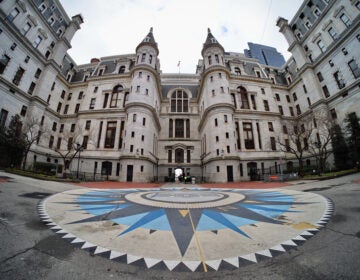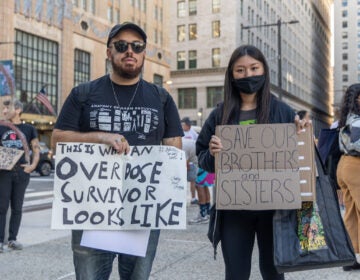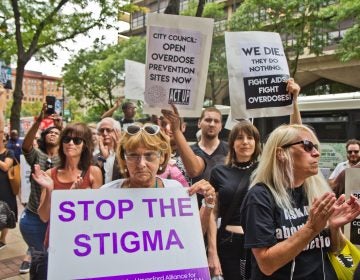Philly targets big pharma in suit over opioid epidemic
'This epidemic can be traced to the defendants' false and deceptive marketing to doctors — and to the public — that these drugs were safe and effective,' says city solicitor.

Philadelphia City Solicitor Sozi Tulante announced a suit against major pharmaceutical companies that the city holds responsible for the opioid epidemic. (Emma Lee/WHYY, file)
Allergan. Johnson & Johnson. Cephalon. These are just three of the pharmaceutical companies Philadelphia has filed suit against in an effort to recoup its losses in the opioid epidemic that it’s termed “a public health nightmare.”
During the peak of the HIV/AIDS epidemic in the 1980s, 935 people died from the disease. Last year, about 1,200 people died of drug overdoses — 80 percent of them related to opioids, said city solicitor Sozi Tulante in announcing the suit Wednesday.
The opioid manufacturers are directly implicated in the opioid crisis, he said.
“This epidemic can be traced back to the defendants’ false and deceptive marketing to doctors — and to the public — that these drugs were safe and effective for long-term daily treatment of chronic pain,” Tulante said.
“Defendants also fostered and handsomely rewarded a range of physicians as ‘key opinion leaders’ and used front groups who claim that addiction to prescription opioids is, and I quote, ‘distinctively uncommon,’ ” he said.
Thomas Farley, city health commissioner, agreed, saying that the surge in opioids, “didn’t just happen.”
He pointed to a pattern of behavior on the part of the opioid manufacturers.
“They systematically misled doctors, telling them that these drugs were effective for chronic pain,” Farley said. “They are not. They told doctors that they were safe, and that they were not addictive. In fact these drugs are risky, and they are highly addictive.”
The lawsuit, filed in state court, aims to begin changing that what the city calls aggressive and deceptive marketing tactics, Tulante said.
“We want the defendants to end their ongoing deceptive marketing practices, to communicate clearly to the doctors and to the public, just how risky these drugs are,” he said.
The city also wants the companies too help the city financially in light of its expenditures for first responders, public health programs and the prison system.
He said the opioid epidemic has cost the city “millions of dollars.”
WHYY is your source for fact-based, in-depth journalism and information. As a nonprofit organization, we rely on financial support from readers like you. Please give today.




